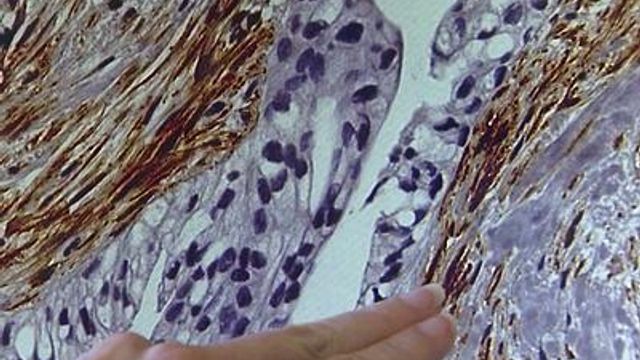UNC researchers study proteins surrounding tumors
Typically, cancer researchers look at cancer cells. But researchers at the University of North Carolina are studying the proteins surrounding tumors in patients with pancreatic cancer to see if they can help predict the cancer’s growth.
Posted — UpdatedThe protein is called palladin and UNC molecular researchers Dr. Carol Otey and cancer surgeon Dr. H.J. Kim say the intense presence of it is a key molecular marker for pancreatic cancer.
“This is not something that happens later on in metastasis. In the early stages of pancreas cancer, we are seeing over-expression of palladin, in the surrounding fibroblasts,” Kim said.
“This could be a very clear diagnostic marker to tell them whether or not the cancer is starting to form,” Otey said.
Pancreatic cancer is often inherited, so researchers say the discovery could lead to people with a strong family history of the disease having periodic biopsies taken from the pancreas to see if a dense wall of palladin cells is forming.
“We know if we catch this disease early enough and can resect it, those patients are the only patients that have a hope for long-term survival,” Kim said.
The research also helps explain why tumors in the pancreas are so resistant to treatment. Otey says the nest of palladin protein builds up a wall of collagen and “appears to act as a barrier that prevents delivery of the chemotherapy drugs to the cancer cells.”
The findings could help future research focus on ways to bypass these barriers to kill the cancer and help more patients survive a very aggressive disease.
• Credits
Copyright 2024 by Capitol Broadcasting Company. All rights reserved. This material may not be published, broadcast, rewritten or redistributed.





